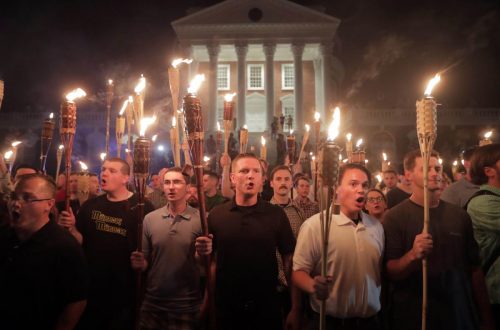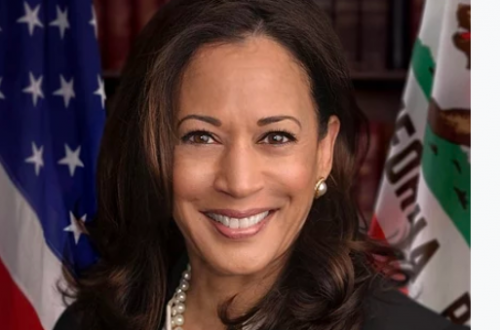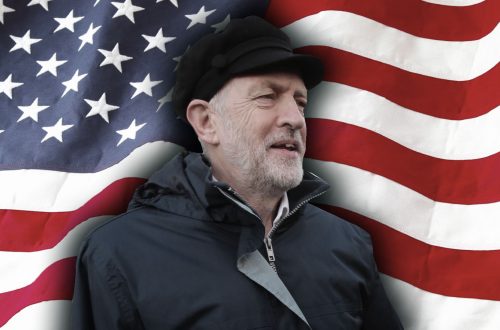Via Michael Totten, I found this lovely photo of Ann Coulter paying her respects at the final resting place of the hero of her latest book.
I wonder if Coulter would be so worshipful if she knew how the sainted Mr. McCarthy first came to be elected to the US Senate. The story is told in a 1953 political memoir by James Wechsler called The Age of Suspicion. Wechsler– an outspokenly anti-Communist liberal– joined the Party as a student in the early 1930s, quickly became disillusioned and left. Later, as the editor of The New York Post, he denounced McCarthy’s tactics and was hauled before McCarthy’s committee, where the senator was pleased to bring up Wechsler’s Communist past– which Wechsler had never hidden or denied.
Wechsler tells that when McCarthy first ran for Senate from Wisconsin in 1946, he challenged the pro-labor, anti-Communist Senator Bob LaFollette Jr. in the Republican primary:
To reactionary Republicans, LaFollette was an interloper, an incorrigible progressive wearing false political colors. To the communists he was a dangerous “anti-Soviet” voice. In fact he was a gifted, conscientious man who, having renounced isolationism, became– like Arthur Vandenberg– an eloquent spokesman of American responsibility. He was one of the first legislators to warn the country that the peace was not secured by military victory. He saw the scope of the Russian design early and he spoke of it bluntly; what rendered his performances especially distasteful to the communists was the difficulty of labeling this son of Midwestern progressivism a “lackey of Wall Street imperialism.”
LaFollette was seeking renomination on the Republican ticket, which was considered tantamount to election. The CIO [labor federation] in Wisconsin was then under communist domination; it quietly encouraged its members to help defeat LaFollette by voting in the Republican primary– Wisconsin’s primaries are open and no previous party enrollment is required. With that curious assist, the Old Guard prevailed. Bob LaFollette was driven from public life.
The nominee who defeated LaFollette and eventually took his Senate seat was Joseph Raymond McCarthy, an ambitious ex-Democrat with a modest reputation for political cunning and no demonstrated convictions of any passionate sort beyond a very real belief in his own political destiny. When, a few days before the primary, he was asked to comment on the communists’ unusual display of interest in a Republican primary, he replied: “Communists have the same right to vote as anyone else.”
The final vote was McCarthy, 207,935, LaFollette, 202,557, a narrow margin which surely entitled the communists to feel their intervention had carried the day. They must have felt even more triumphant when McCarthy announced that “Stalin’s proposal for world disarmament is a great thing, and he must be given credit for being sincere.”
So Joe McCarthy, the anti-Communist hero, quite possibly owed his election to Stalinists who were desperate to defeat an anti-Communist liberal. And this didn’t bother McCarthy a bit.
It’s a funny old world, isn’t it, Ann?


